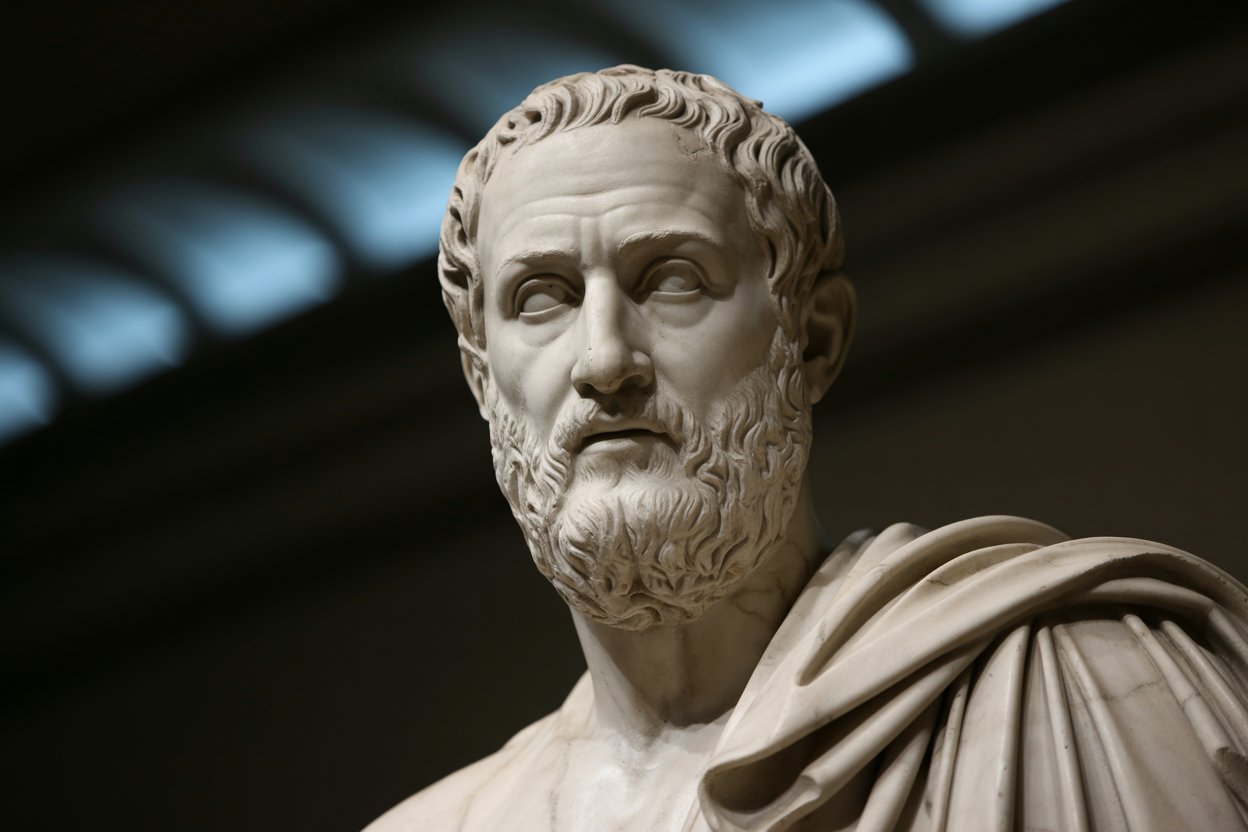The ancient Stoics understood something profound about human nature: the quality of your life depends less on what happens to you and more on the questions you ask yourself. Marcus Aurelius, Epictetus, and Seneca used powerful questions to examine their thoughts, actions, and responses to life’s challenges.
These questions weren’t abstract philosophical exercises but practical tools for daily living. By asking the right questions, you can shift your mindset, strengthen your self-discipline, and navigate life’s difficulties with greater wisdom and calm. Let’s look at ten Stoic questions that can change your life.
1. What’s Within My Control Right Now?
Epictetus taught that “Some things are up to us, and some are not.” This simple distinction forms the foundation of Stoic philosophy, offering immediate relief from anxiety. You can control your actions, responses, and judgments, but you can’t control other people’s opinions, the weather, the economy, or countless external factors.
Peace begins when you stop fighting what’s outside your control. This question redirects your energy toward what you can actually influence, making you more effective and less stressed.
2. What Would My Highest Self Do in This Situation?
Epictetus frequently reminded himself to “Settle on the type of person you want to be and stick to it, whether alone or in company.” This question grounds you in virtue and calls forth your best qualities. Your highest self acts with wisdom, courage, justice, and self-discipline regardless of circumstances.
When facing difficult decisions, asking what your highest self would do elevates your thinking beyond immediate gratification or reactive behavior. It transforms ordinary moments into opportunities for personal growth and character development.
3. If This Were My Last Day, Would This Matter?
The Stoics practiced memento mori—meditation on mortality—to gain clarity. When you consider your finite time on earth, trivial worries and petty grudges lose their power. That argument with a coworker, the social media drama, the minor inconvenience—would any of it matter if today were your last?
This perspective helps distinguish between what deserves your attention and what doesn’t. By acknowledging mortality regularly, you invest your energy in relationships, growth, and actions that genuinely matter.
4. Am I Reacting or Responding?
Seneca observed that “We suffer more in imagination than in reality.” Reactions are automatic, emotional, and often regrettable. Responses are thoughtful, measured, and aligned with your values.
When you pause to ask whether you’re reacting or responding, you create a space between the stimulus and the action. This space is where wisdom lives. The Stoics believed that while you can’t always control what happens, you can always control your response.
5. What Would Happen If I Accepted This Fully?
Acceptance isn’t weakness or resignation—it’s realism and the starting point for effective action. When you resist reality, you waste energy fighting what already is. Acceptance means acknowledging your situation without adding suffering through denial.
This question is compelling during difficult times. Financial setbacks, health challenges, relationship problems—these situations improve through clear-eyed acceptance followed by appropriate action. Epictetus said, “Don’t seek for everything to happen as you wish it would, but rather wish that everything happens as it actually will—then your life will flow well.”
6. What Lesson Does This Challenge Contain?
Marcus Aurelius wrote that “The impediment to action advances action.” Every obstacle contains a lesson if you’re willing to look for it. This question transforms frustration into wisdom and setbacks into opportunities for growth.
Failed project? Perhaps it’s teaching you better planning. Difficult person? Maybe they’re showing you where you need to establish stronger boundaries. The Stoics saw challenges as training exercises for character development.
7. Who or What Truly Has Power Over Me?
True freedom exists in recognizing that only your own judgments can enslave you. External things—money, status, other people’s opinions—have no inherent power over you. They only gain power when you give it through your judgments and attachments.
Are you giving your boss power over your self-worth? Are you enslaved to social media validation or material possessions? The Stoics taught that external circumstances can affect your body but can’t touch your character unless you permit it.
8. Am I Living According to Nature and Reason?
This core Stoic question tests whether your choices align with your values or are driven by impulse and fear. “According to nature” means living in harmony with your rational human nature—making choices based on wisdom rather than destructive passions.
Are you choosing this job because it genuinely suits you, or because you’re chasing status? This question cuts through self-deception, helping you live authentically.
9. What Am I Grateful for Right Now?
Seneca advised daily gratitude practice to balance life’s hardships. Gratitude trains your perception to see abundance rather than deprivation. This isn’t toxic positivity—it’s acknowledging that even in challenging times, elements worthy of appreciation still exist.
Daily gratitude fundamentally changes how you experience life. The Stoics understood that two people in identical circumstances can have vastly different experiences based solely on what they choose to notice and value.
10. Have I Done My Duty Today?
Marcus Aurelius closed his reflections by asking whether he lived as a good person. Each evening, review your actions—not to judge harshly but to improve tomorrow. Did you act with integrity? Treat others with respect? Work on your goals?
This nightly review creates accountability without guilt. You acknowledge where you fell short, learn from it, and approach tomorrow with renewed commitment.
Conclusion
These ten Stoic questions offer a practical framework for daily living. They help you focus on what matters, respond wisely to challenges, live in accordance with your values, and grow continuously. The power lies not in asking them once, but in making them a habit.
Start by choosing one or two questions that resonate most strongly. Ask them regularly until they become automatic. Over time, these questions will reshape how you think, decide, and act. The teachings of Marcus Aurelius, Epictetus, and Seneca can be life-changing if you follow their path.
